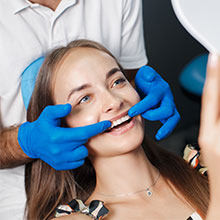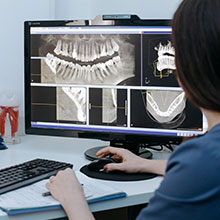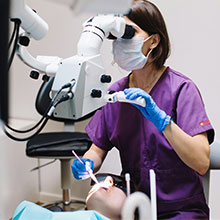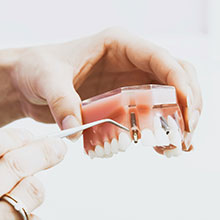General Dentistry
AT SMILE AVENUE DENTAL CLINIC, WE LOOK AFTER YOUR TEETH AND KEEP THEM HEALTHY FOR THE WHOLE FAMILY.
It’s always better to stop problems before they start. Seeing the dentist regularly helps keep your smile in good shape. During a check-up, the dentist will carefully check your teeth and might take x-rays to see if everything is okay.
They will also show you the best way to brush your teeth so you can keep them nice and clean at home.
Routine Dental Care
How often you need to see a dentist depends on how healthy your teeth are. Most people go every six months, but it can be different for everyone. Regular check-ups help the dentist find any problems early, before they get worse.
Stopping Gum Disease with Hygiene Appointments
Seeing a hygienist helps keep your gums healthy and free from disease. Hygienists are experts who check, treat, and keep track of gum problems, making sure your mouth stays clean and free from harmful bacteria.
Children’s Dentistry
Bring your child to the dentist as soon as their first baby teeth come through. This helps them get used to the dentist and feel comfortable in the clinic.
The dentist can give advice on how to stop cavities and spot any problems early. Even just letting the dentist have a quick look in their mouth is good practice for future visits.
Tooth Extractions
Sometimes, a tooth needs to be removed to keep your mouth healthy. This could be because it is damaged, decayed, or causing problems for other teeth. A dentist will carefully take out the tooth to prevent pain or infection.
They will also explain how to look after your mouth afterward so it heals properly.
Oral Cancer Screening
During every check-up, the dentist also looks for signs of oral cancer. This involves a careful check of your mouth and surrounding areas. It helps reassure you that everything is fine or allows early treatment if needed.
A dentist may recommend a screening based on your lifestyle, or you can ask for one as a precaution. If anything looks unusual, they might refer you to a specialist for further checks or treatment.




